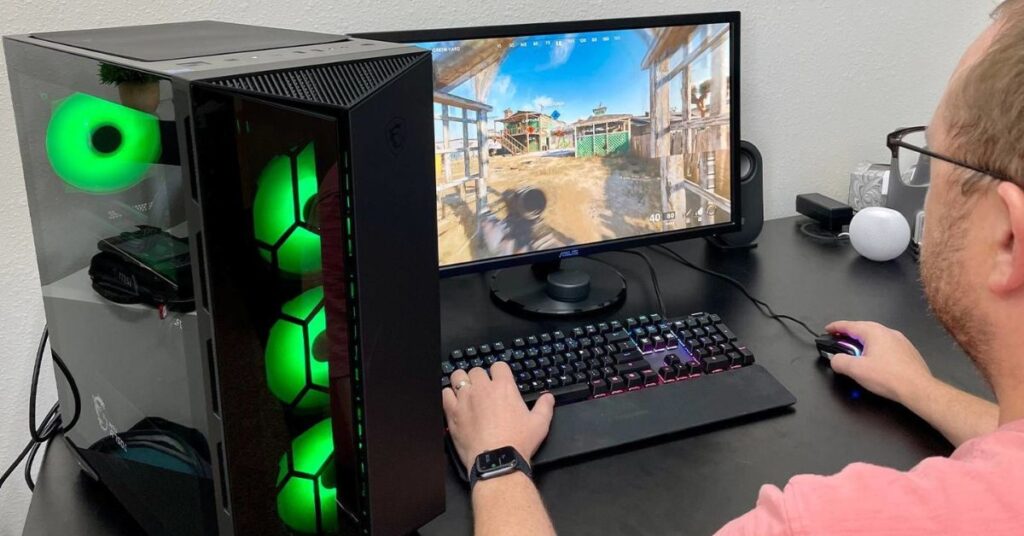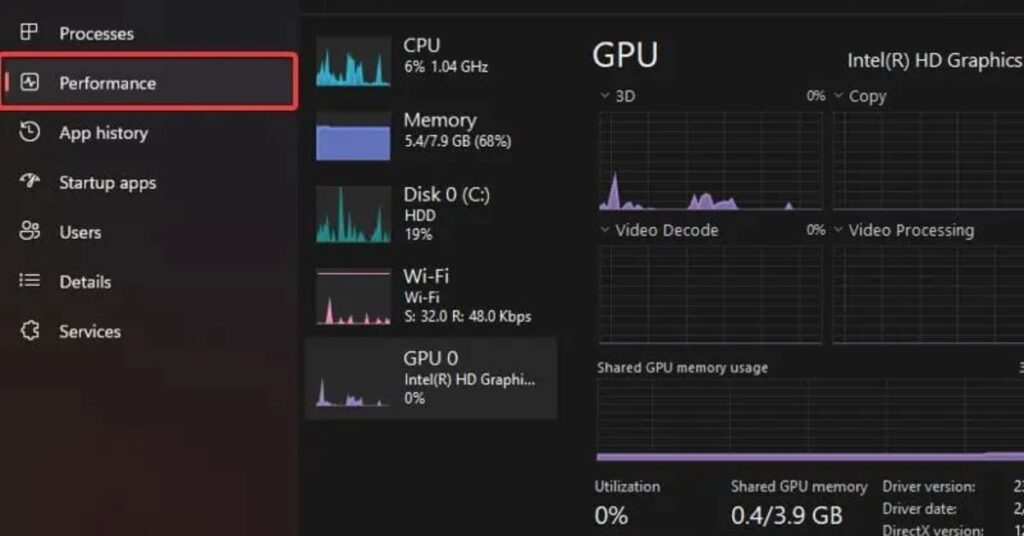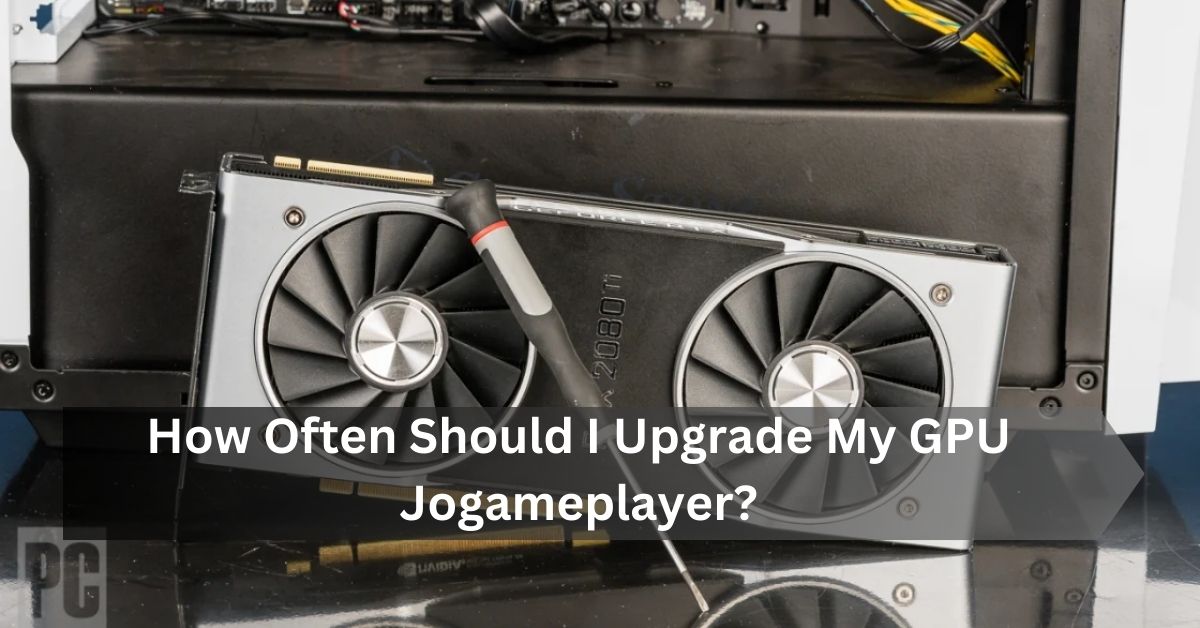Are you an avid player who enjoys immersive experiences and outstanding visuals? Then, you recognize how crucial a powerful graphic processing unit (GPU) is.
However, with a GPU running slowly, it could be challenging to keep up with current updates and determine when to spend money on a brand-new GPU.
In this article, we will discuss how frequently you should replace your GPU to ensure a high-quality gaming experience and optimize your gaming experience.
Understanding GPU Lifespan and Performance:
Like any technology, GPU’s have a lifespan influenced by usage intensity and technological advancements. In common, a GPU can continue to be feasible for about 3 to 5 years before you begin noticing performance boundaries, such as decreased frame charges or compatibility problems with newer video games.
Technological advancements in GPU architecture often accompany releases, bringing vast performance boosts. For game enthusiasts, this indicates newer GPU’s can manage more demanding graphics and offer smoother gameplay experiences.
The GPU Warning Signs You Can’t Ignore:
1. Decreased Performance:
If you notice a considerable drop in frames consistent with 2nd (FPS) or revel in graphical system faults in games, it can imply your contemporary GPU is struggling to preserve up.
2. Inability to Run Newer Games:

Newer video games regularly require more powerful hardware. An upgrade can be essential if your GPU cannot run the latest titles at ideal settings.
3. Technological Demands:
As recreation builders harness superior graphics technologies like ray tracing and better resolutions, older GPU’s may additionally warfare to supply the most efficient overall performance.
4. Compatibility Issues:
As video games improve in visuals and technology, previous GPU models may conflict with the continued functioning of the games. If you notice that your GPU is incompatible with the latest video games or software updates, it may be time to upgrade.
Read More: Overcomeandinspire.com-Empowering Your Journey to Success
Factors Influencing Upgrade Frequency:
The frequency of GPU upgrades depends on several factors:
- Gaming Habits: Your gaming possibilities and behaviour play a critical position. If you play graphically extensive games or select better resolutions and settings, you could need more excellent frequent upgrades to preserve superior performance.
- Budget Considerations: Upgrading your GPU can be a tremendous investment. Balancing performance gains with budget constraints is essential. In some cases, holding up for a more significant execution jump in more up-to-date GPU generations can offer superior value.
Strategic Timing for Upgrades:
Understanding GPU release cycles helps you to upgrade strategically. GPU producers typically launch new models each year with substantial technological improvements.
Additionally, bear in mind future-proofing your gaming setup. While it is tempting to usually have modern hardware, strategic enhancements that align with your gaming needs can increase the lifespan of your gaming rig without steady upgrades.
How to Assess GPU Performance Needs:

Assessing your GPU’s performance needs involves:
- Benchmarking Tools: Use benchmarking software to evaluate your GPU’s performance against current gaming standards. This helps you gauge if an upgrade is necessary.
- Expert Reviews: Consult reviews and gaming benchmarks from reputable sources. These provide insights into how different GPU’s perform across various games and settings, guiding your upgrade decisions.
Read More: Ztec100.com-The Future of Technology for Better Life
How Often Should the Average Gamer Upgrade Their GPU?
- Gaming requirements: If you play graphically demanding video games, you could want to improve more frequently (every 2-3 years).
- GPU generation improvements: Recall upgrading every three to four years to take advantage and overall performance improvements.
- Budget: If you reside in an acceptable pricing range, you may choose to improve less frequently (every 4-5 years).
- GPU longevity: The average GPU lifespan is 3-5 years, but high consumption may decrease this.
General GPU upgrade schedule for gamer’s:
- Casual gamer’s: Upgrade every 4-5 years, as graphics requirements don’t change drastically.
- Mid-core gamer’s: Upgrade every 3-4 years, balancing performance and budget.
- Hardcore gamer’s: Upgrade every 2-3 years, prioritizing the latest performance and features.
Maximize Your GPU’s Potential:
1: Regular Maintenance and Cleaning:
- Clean dust routinely and from the GPU and its surroundings.
- Assess and clean the cooling framework to guarantee ideal execution.
2: Driver Updates and Firmware Maintenance:

- Regularly update drivers for optimal performance and bug fixes.
- Keep firmware up-to-date to ensure compatibility and bug fixes.
3: Proper Installation and Handling:
- Ensure proper installation to avoid physical stress and damage.
- Handle the GPU with care to prevent damage to the PCB, connectors, and cooling system.
Read More: https://entretech.org-Bridging The Gap Between Entrepreneurs And Technology
The Latest Trends in GPU Technology:
1. Ray Tracing Revolution:
The merging of ray tracing capabilities is an exciting improvement in the GPU era. With sensible reflections, shadows, and lights, this modern rendering approach mimics the behaviour of light in real time. With ray tracing, video games look more practical than ever, blurring the traces between fantasy and reality.
2. Real-Time Global Illumination:
This technique accurately simulates how mild interacts with surfaces and items in a digital environment, resulting in dynamic and realistic light outcomes. With real-time international illumination, video games provide a fantastic, immersive, visually pleasing experience, adding depth and atmosphere to every scene.
FAQs:
1: How long should I expect my GPU to last?
With reasonable care and maintenance, a GPU can last 5-7 years or more, depending on usage and quality.
2: How does it reduce GPU lifespan?
Overheating, overclocking, dirt buildup, electricity surges, driver troubles, production defects, high frame charges, and terrible cooling are factors that lessen GPU lifespan.
3: Are there any alternatives to upgrading my GPU for overall performance?
Optimizing in-recreation settings, updating drivers regularly, and ensuring proper cooling can enhance overall performance without necessarily upgrading the hardware.
Read More: Buffstreamz-The Ultimate Destination for Seamless Live Sports Streaming
Conclusion:
Your gaming preferences, financial situation, and technical advancement rate determine the GPU update frequency. Investing in a better GPU relies on your gaming preferences, budget, and the rate at which technology develops. Considering these factors, you can decide on the first-rate time to upgrade and enjoy gold-standard gaming performance.
